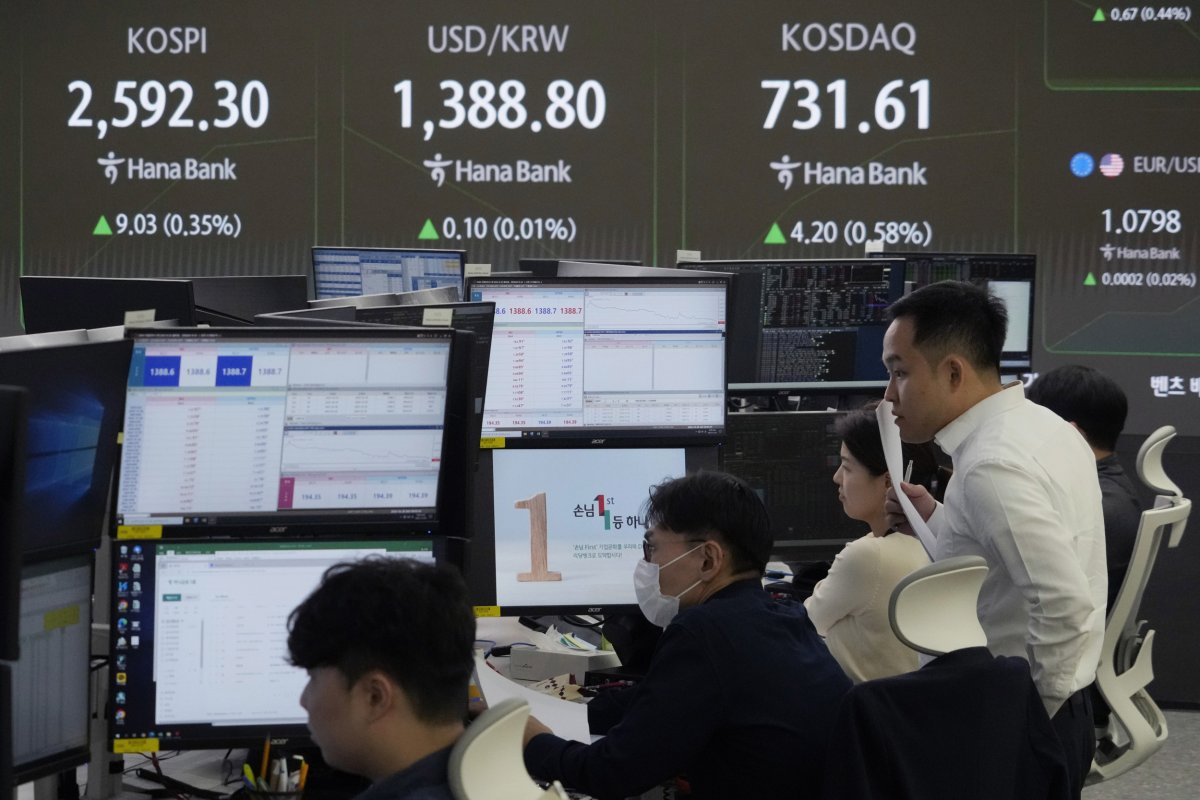Global shares climbed up on Monday, buoyed by a weakened yen and the fallout from Japan's recent parliamentary elections, which saw the ruling party lose its majority in the lower house.
In Europe, France's CAC 40 rose 0.7 percent to 7,552.94, while Germany's DAX went up by half a percent to 19,549.65.
The UK's FTSE 100 gained nearly 0.2 percent, reaching 8,260.84.
In the currency markets, the U.S. dollar strengthened against the yen, rising to 153.33 from 152.24, a significant shift from the 140-yen levels seen just a month ago.
The euro traded at $1.0817, up slightly from $1.0803.

Japan Election Results
The depreciation of the yen is good news for major Japanese exporters, including Toyota Motor Corp., whose shares jumped 4.1 percent in Tokyo. Nintendo and Sony also saw gains of two percent each, reflecting optimism despite the political turmoil.
Japan's ruling Liberal Democratic Party (LDP) remains the leading political force, but a series of electoral defeats, particularly linked to a scandal over unreported campaign funding, has weakened its position.
The ruling coalition, which includes junior partner Komeito, secured 215 seats—down from the previous majority of 279, according to local media.
As uncertainty looms over Japan's political landscape, analysts predict the Bank of Japan will refrain from making any immediate changes to interest rates.
A monetary policy meeting is scheduled for later this week, but the LDP's losses were largely anticipated and had already been factored into market expectations.

Can a U.S. Recession be Avoided?
Tokyo's benchmark Nikkei 225 rose 1.8 percent to close at 38,605.53, while Australia's S&P/ASX 200 gained 0.1 percent to 8,221.50.
South Korea's Kospi climbed 1.1 percent to 2,612.43, and the Shanghai Composite saw a 0.7 percent increase to 3,322.20.
Hong Kong's Hang Seng remained relatively flat, adding less than 0.1 percent to 20,599.36.
Investors are closely monitoring company earnings, with more than a third of S&P 500 companies having reported quarterly results.
Most have exceeded analysts' expectations, fueling confidence ahead of a slew of upcoming earnings announcements.
In the U.S., the Federal Reserve has recently raised its benchmark interest rate to the highest level in two decades, aiming to curb inflation while avoiding a recession.
A key report on U.S. consumer spending, the Personal Consumption Expenditures (PCE) index, is anticipated later this week, with expectations that it will show inflation easing to two percent.
Why Have Oil Prices Dropped?
Following a series of interest rate cuts initiated in September, further reductions are expected during the Fed's November meeting.
In the energy markets, benchmark U.S. crude oil prices fell $3.46 to $68.32 a barrel, while Brent crude dropped $3.48 to $72.57.
Analysts attribute the decline in oil prices partly to Israel's recent military actions against Iran, which were less aggressive than anticipated and did not target oil infrastructure.
As global markets react to these developments, the interplay of political events and economic indicators continues to shape the investment landscape.
This article contains addtional reporting from The Associated Press





.png)














 English (US) ·
English (US) ·